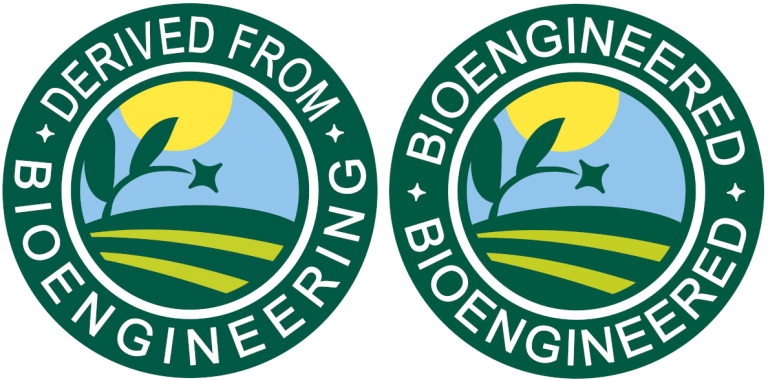
Co-op News | Spring Quarterly 2019
Flipping the Script on GMO Labeling
Up until this point, companies sharing that their products are certified organic or Non-GMO have taken on the responsibility of labeling their packages for consumers. Consumer organizations like the Non-GMO Project have been pushing for decades to get mandatory labeling of genetically modified foods. It’s finally here. The National Bioengineered Food Disclosure Law passed the U.S. Congress in July of 2016 and directed the United States Department of Agriculture (USDA) to establish a mandatory standard for disclosing foods that may be bioengineered. The details of that standard were released in December 2018.
The standard requires that food manufacturers, importers and some retailers properly disclose when a food product includes bioengineered material. The term bioengineered in labeling is intended to replace the current terms ‘Genetically Modified Organism’, ‘GMO’ and ‘Genetically Engineered’. Bioengineered foods are those that contain detectable genetic material that has been modified through laboratory techniques, that does not occur naturally and cannot be created through conventional breeding.
The new standard will be implemented in January 2020 with companies complying voluntarily until the end of 2021. Starting in 2022, the labeling standard will become mandatory. The approved labels have been released, so you may begin seeing them as early as this spring. The expectation is that rather than calling out when a food doesn’t contain bioengineered material, the new labeling will make it clear when a food IS bioengineered. However, food produced by very small food manufacturers (those with less than 2.5 million in annual sales), and food served in restaurants, food trucks, trains, airplanes or similar establishments will not be required to bear bioengineered food labels, even if the product has bioengineered ingredients.

The labels shown here are not the only disclosure option for food producers. Additional options for identifying an item as bioengineered or containing a bioengineered food ingredient include a printed statement on the product, an electronic code (such as a QR code) for consumers to scan for additional information, or an invitation to text to a phone number to receive product information. Not everyone is happy with the new mandatory labeling, stating it doesn’t go far enough. Consumer groups such as Just Label It, Food and Water Watch and the Center for Science in the Public Interest are unhappy with the new standard, stating that introducing the new term ‘bioengineered’ and allowing manufacturers to use electronic codes or text messaging as an alternative to a visible label are intended to confuse consumers and hide bioengineered ingredients, particularly from consumers who don’t have access to cell phones or live in rural areas where good cell service is lacking.
Additionally, because the disclosure is required based on testing of the product and detectable levels of modified genetic material, highly processed foods may not contain detectable levels, despite using food ingredients that are bioengineered. In these cases, the labeling could distinguish that the product is ‘Derived from Bioengineering’. Such labeled foods wouldn’t contain detectable levels of modified genetic material, so the disclosure is voluntary rather than mandatory. The Center for Science in the Public Interest agrees with the decision to disclose that highly processed ingredients can be labeled as “Derived From Bioengineering,” but disagrees with the USDA’s decision not to mandate that disclosure.
The Co-op’s Non-GMO policy ensures consumers know what they are buying, regardless of the new standard:
- We will allow products on our shelves that are non-organic, and non Non-GMO Project verified as long as they are labeled as such. This will apply to the new bioengineered labels.
- We will not promote products that are at high risk for containing GMOs on end caps or in stacks.
- We work to ensure that all Co-op private label products are free from ingredients that are at high risk for containing GMOs.
- We will not include products that are at high risk for containing GMO ingredients in our Co-op Basics program.
- We will not carry products that are themselves, nor contain ingredients made from, genetically engineered animals.
Because of their dissatisfaction with the new standard, the Non-GMO Project will continue its work to support labeling of organic foods as Non-GMO. Consumers will soon have two options to help them understand what they are buying – one identifying when a product is free of GMOs and a new, second line of defense helping to identify when a product does contain bioengineered ingredients.




